A five-year-old boy has died after being struck by a vehicle while riding a bicycle in Mississauga.
Peel police were called to Hurontario Street and Elm Drive just after 5:30 p.m.
The child suffered life-threatening injuries and was rushed to hospital. He was pronounced dead in hospital.
The driver involved remained on the scene. Police say the initial investigation found the child was attempting to cross the road on a bicycle while the vehicle was travelling northbound.
Police say the father of the child was present when the boy was struck.
Hurontario Street is closed between Burnhamthorpe Road and Central Parkway Drive and is expected to remain closed for several hours.
May The 4th be with you! To celebrate Star Wars Day, chef Matt Basile from Fidel Gastro’s is sharing some of his favourite, out of this world recipes:
1. Light Saber Corn Dogs
What you’ll need:
- 8 all-beef hot dogs
- 8 sturdy popsicle sticks or skewers
- 1 cup fine cornmeal
- 1 cup all-purpose flour
- 2 tbsp brown sugar
- 1 tbsp kosher salt
- 2 tsp baking powder
- 1 large egg
- 2 cups buttermilk
- 1.5 cups 2% milk
- 2 tbsp melted butter, cooled to room temperature
- Red food colouring
- blue or green food colouring
Method:
In a large mixing bowl, mix all your dry ingredients together, whisking the cornmeal, all-purpose flour, 2 tbsp brown sugar, 2 tsp baking powder, and 1 tbsp salt, until fully combined. Roll your hot dogs in the dry mix and set aside. This ensures the batter adheres to the hot dog when you fry it. In a separate bowl whisk your egg with room temperature melted butter. Add the buttermilk and 2% milk to the egg mixture and mix to combine. Slowly pour the wet mixture into your dry ingredients, whisking simultaneously until you have a smooth cornmeal batter. Split the batter in half and add red food colouring to one side and green to the other (for Sith and Jedi)
Preheat your frying oil to 375F
Using tongs, fully submerge and roll the hot dogs in your cornmeal batter until fully coated. One by one, carefully add them to the hot oil, moving them around slowly to ensure they don’t stick to the bottom of your heavy bottom pot. Fry the corn dogs for 3-4 minutes then flip them in the oil for another 2-3 minutes. When they have reached a golden brown colour (or the Jedi / Sith colour), remove them carefully from the oil with tongs onto a dish or tray layered with paper towel. Skewer each corn dog with a large stick.
2. Turkey Wings
What you’ll need:
- 4 large whole turkey wings
- 1L chicken or veg stock
- 2 onions cut in half
- 1 bunch fresh thyme
- 1 lemon cut in half
- Salt and pepper
- 4 cups flour
- Brown coloured BBQ sauce
- Side Hot sauce
- Oil for frying pan optional
Method:
Lightly season wings in salt and pepper. Add the cut onions and fresh thyme, lemon and stock to a braising pan and place the wings in the stock. Cover the pan with parchment paper and tin foil wrapped tightly. Set in oven at 275F and cook for 2 hours. Remove from pan and let cool to room temp then toss in flour. Lightly fry the floured wings at 375F until crispy then brush with BBQ and add side hot sauce to make chewbacca noises.
3. Death Star Scotch Egg
What you’ll need:
- 2 eggs + 1 egg
- 1 cup flour
- 1 cup panko
- 3/4 pound ground pork
- 1tsp salt
- 1/2 tsp black pepper
- 1/2 tsp Chinese 5 spice
- 1/2 tsp ground ginger
- 1/2 tsp onion powder
- 1 cup hoisin sauce
- Chives or green onion for garnish
- Oil for frying
Method:
Place 2 eggs in pot of warm water and bring to boil. Eggs should be in water from start to finish for 10 minutes total (not just once boiling). Remove from water and immediately run under cold water for a few minutes until the eggs feel cool in the han and remove sell.
Season pork with salt, pepper, 5 spice, ginger, and onion powder and wrap meat around egg. Place in fridge for 1 hour and then roll meat covered egg in flour, then whisked egg mixed with 1/4 cup water, then panko. Set frying oil to 325F and let cook for 12-15 minutes. paint scotch egg with hoisin and garnish with cut green onions.
4. Sith Margarita (makes 2)
What you’ll need:
- 1.5 oz tequila blanco
- 1.5 oz triple sec
- 1.5 oz hounds black vodka
- 3 oz lime juice
- 1 tbsp egg white
- Ice
- 2 maraschino cherries
Method:
Add ice, tequila, vodka, tripe sec, lime juice and and egg white in a shaker and shake until cold. Pour into a glass and add 2 cherries
*Bonus if you can find black or or red sugar rim – add it in!
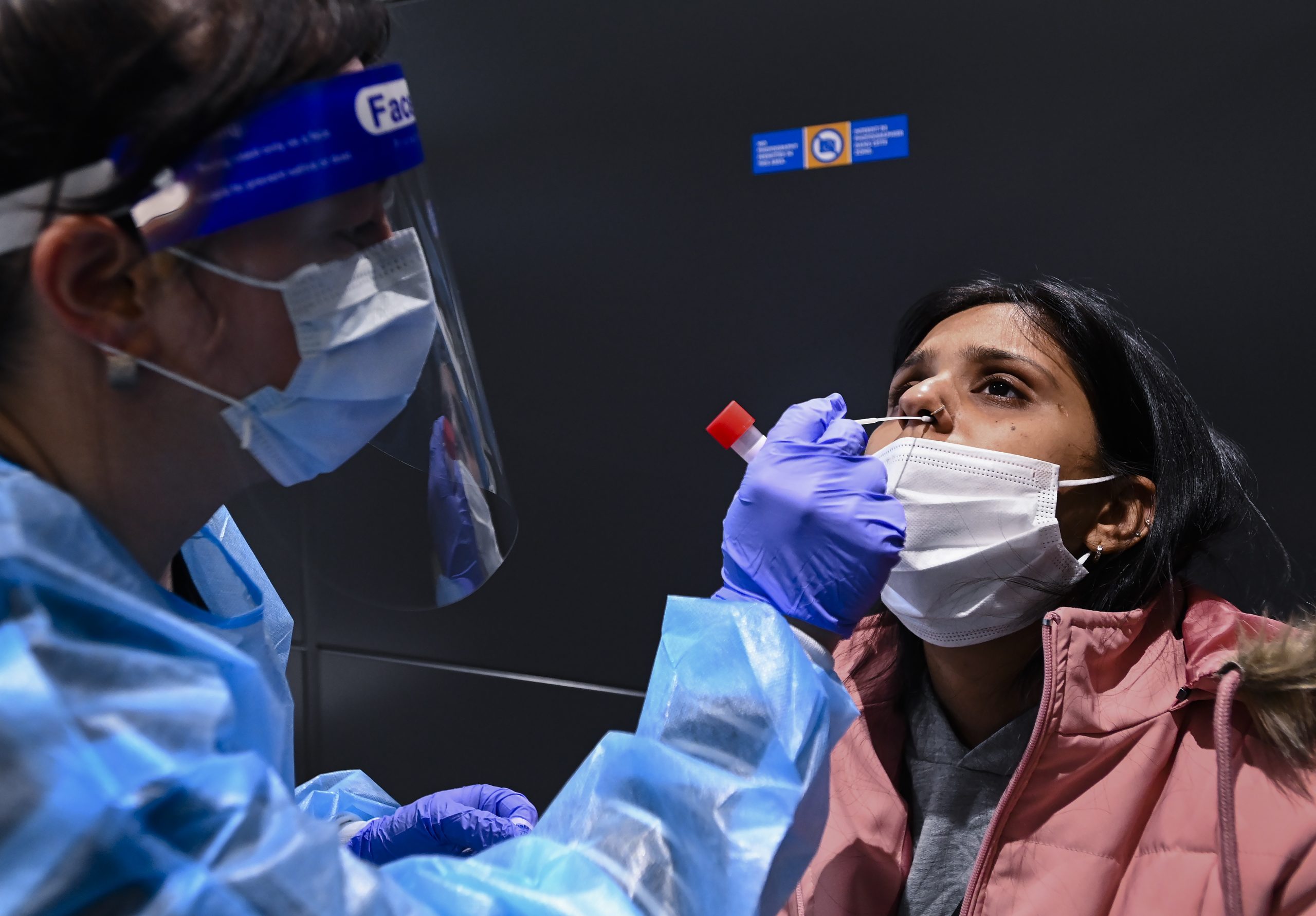
More than 5,000 people tested positive for COVID-19 after flying back to Canada since mandatory quarantine hotels began in late February.
Thus far, variants of interest or concern have been identified in almost one-third of those cases.
Data provided by the Public Health Agency of Canada lists 3,748 people who tested positive the day they returned despite having to show a negative COVID-19 test taken no more than three days before they boarded their plane.
Another 1,411 people came back positive for COVID-19 on the test required 10 days after they returned. Among all of them, 1,566 tested positive for a variant of concern and another 134 tested positive for a variant of interest.
More than 95 per cent of the variants of concern are B.1.1.7, first identified in the United Kingdom. It is now the dominant variant in Canada.
The travel numbers are relatively small compared to Canada’s total caseload — there were more than 342,000 cases of COVID-19 between Feb. 22 and April 29 — but provincial premiers are nonetheless pressuring Ottawa to do even more to keep faster-spreading variants from getting into Canada on planes.
“I’m extremely concerned about new COVID variants making their way into Ontario,” the province’s premier Doug Ford said Monday on Twitter after learning about the latest traveller statistics from The Canadian Press.
“Over 90% of new cases in Ontario are new variants. We’re seeing more young people in ICUs. It’s clear stronger border measures are needed.”
But Canada’s top doctors said Friday there is too much focus on the border and not enough on stopping COVID-19 from spreading within Canada.
“There seems to be a lot of interest and almost, I would say, a [preoccupation with the borders] but at the end of the day, if you look at the actual risk in terms of importation, the actual number of cases with respect to people crossing the border compared to what’s happening in the communities in many of the hardest hit provinces, I think that’s where the public health focus has to be,” said Deputy Chief Public Health Officer Dr. Howard Njoo at a news conference April 30.
As the new variants began emerging around Christmas, Canada first began requiring negative tests taken no longer than 72 hours before boarding a flight to Canada, then in late February, imposed mandatory hotel quarantines.
All international air passengers are required to spend up to three days in a designated quarantine hotel near one of the authorized airports in Toronto, Vancouver, Montreal and Calgary. Once they get a negative test result they can return home to finish their two week quarantine there, but must provide a second test result.
Initially the second test was required on day 10, but it is now on day eight.
On April 23, Canada banned flights from India and Pakistan because of the high number of positive COVID-19 cases on those flights. In the two weeks before that decision was made, 165 flights carried at least one person who later tested positive, 43 of them from India.
Almost every flight that landed from India had at least one positive COVID-19 patient.
Overall about 1.5 per cent of international air travellers tested positive, according to the PHAC data.
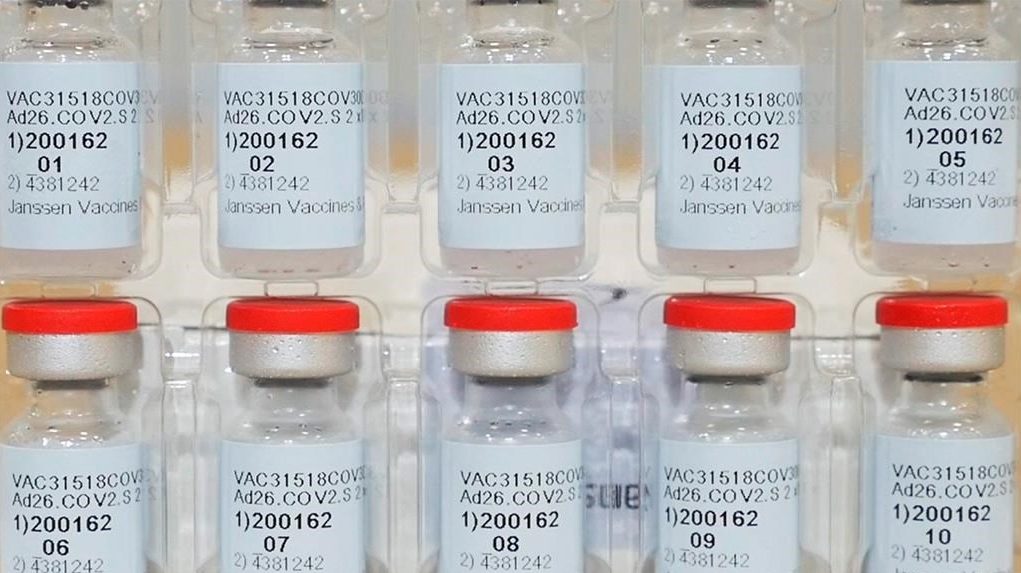
The National Advisory Committee on Immunization (NACI) recommended on Monday that provinces give the Johnson & Johnson vaccine to adults 30 years of age and older.
The NACI said the single-dose vaccine should be limited to people in that age group who don’t want to wait for the Pfizer-BioNTech or Moderna vaccines.
The advice is almost identical to that issued for the Oxford-AstraZeneca vaccine last month and comes as both are suspected of causing a new and very rare blood clotting syndrome.
In Canada there have been seven known cases of vaccine-induced thrombotic thrombocytopenia, or VITT, one of them fatal.
As of April 24, 1.7 million people in Canada have been given at least one dose of the AstraZeneca vaccine.
No J&J doses have been injected in Canada thus far, but in the U.S. they have documented 17 cases of the blood-clotting disorder in about eight million doses given.
Health Canada had paused its distribution of 300,000 J&J doses after discovering they were partly made at an American facility cited for safety and quality-control violations.
NACI also recommended that provinces use the J&J vaccine on populations that may have trouble booking a second dose if they were given a different vaccine.

Bill and Melinda Gates announced Monday that they are divorcing.
The Microsoft co-founder and his wife, who launched the world’s largest charitable foundation, said they would continue to work together at the Bill & Melinda Gates Foundation.
In identical tweets, they said they had made the decision to end their marriage of 27 years.
“We have raised three incredible children and built a foundation that works all over the world to enable all people to lead healthy, productive lives,” they said in a statement. “We ask for space and privacy for our family as we begin to navigate this new life.”
Last year, Bill Gates, formerly the world’s richest person, said he was stepping down from Microsoft’s board to focus on philanthropy.
Gates was Microsoft’s CEO until 2000 and since then has gradually scaled back his involvement in the company he started with Paul Allen in 1975. He transitioned out of a day-to-day role in Microsoft in 2008 and served as chairman of the board until 2014.

An overpass in Mexico City’s metro collapsed Monday night, sending a train downward, trapping cars under rubble and injuring at least 50 people, authorities said.
The incident happened around 10:30 p.m. local time on the metro’s Line 12, the construction of which has been plagued by complaints and accusations of irregularities.
Photos and video from the scene show people climbing ladders to help those trapped inside out of the train through windows.
Alfonso Suarez del Real, secretary of Mexico City’s government, told Milenio Television that the injured were being taken to hospitals.
Mexico City Mayor Claudia Sheinbaum rushed to the area where at least one broken train could be seen along with dozens of rescuers searching through wreckage.
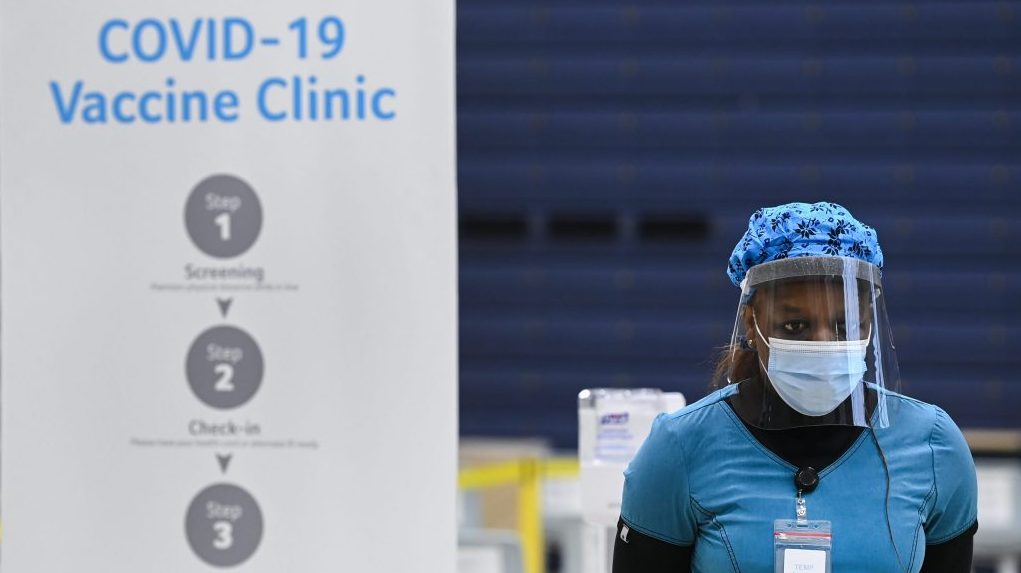
The province says people aged 18 and over and who live in a COVID-19 hotspot zone will be able to book to get their coronavirus vaccine starting at 8 a.m. Monday.
The Ontario government says an increase in the supply of the Pfizer-BioNTech vaccine has allowed them to expand booking eligibility.
“With additional supply our government is increasing access to the COVID-19 vaccines in the communities hardest hit by COVID-19,” said Christine Elliott, Deputy Premier and Minister of Health in a news release Sunday.
People will be able to book their appointment either through the provincial booking system or through municipal public health units that use their own system.
The vaccines will be administered at mass immunization clinics, the province said.
The government has identified 114 communities as priority areas for vaccines– and the province says they want to allocate around 50 per cent of vaccines to those areas during the weeks of May 3 and 10.
Eligibility will expand further on Thursday when online bookings open up to residents 50 and older, the province said. Others captured in that expansion include people with high-risk health conditions, those who can’t work from home including teachers and school workers and First Nation, Inuit and Metis people not previously targeted in earlier phases of the immunization drive.
Thursday’s planned expansion to those with high-risk health conditions include those living with obesity, developmental disabilities and treatments requiring immunosuppression among others.
All adults in hot spots have been cleared for immunization for some time, though they could not book through the provincial website. Instead, residents have been getting shots at pop-up and mobile clinics, sometimes standing in line for hours.
Ontario said it will return to per capita distribution for vaccines on the week of May 17.
If supply holds, the province expects to make those 18 and older eligible for a shot at mass sites provincewide on the week of May 24.

The federal government is facing some criticism after making some changes to Bill C-10, including the ability for the videos you post to be subjected to Canada’s rules for broadcasters.
Michael Geist, Canada’s research chair in internet and e-commerce law at the University of Ottawa, says the changes to the bill are problematic for everyone.
“TikTok videos, or YouTube posts or things [Canadians] put up on Instagram, would all be treated as a program by the regulator by the CRTC (Canadian Radio-television and Telecommunications Commission), and subject potentially to regulation,” he explains.
“We’re still trying to figure out precisely what the CRTC would do. I mean, I think the government’s injected a huge amount of uncertainty into this process by opening the door to these kinds of powers and effectively leaving it to the regulator to make those kinds of decisions.”
Geist adds the main question that the feds need to answer is whether or not the CRTC can be in a position to regulate individual users’ speech?
“In many ways. This speech, whether on TikTok posts or YouTube videos, is for the current generation. It’s their form of expression. It’s how they speak. And for my generation, that might have been blog posts or emails. A prior generation, perhaps faxes or letters,” Geist explains. “We never would have imagined the CRTC would have the power to regulate our faxes or letters or emails. But somehow, the government thinks it’s appropriate to give them that kind of regulatory power over this new form of speech on these other kinds of sites.”
Geist adds the changes to the bill will also affect the desire for social media platforms like Facebook and Instagram to include Canadian content so that they are not responsible for regulating what users upload.
Currently, the CRTC ensures a certain amount of television programs and music on the radio has to be Canadian content, but the bill would extend those rules to social media and individual users too.
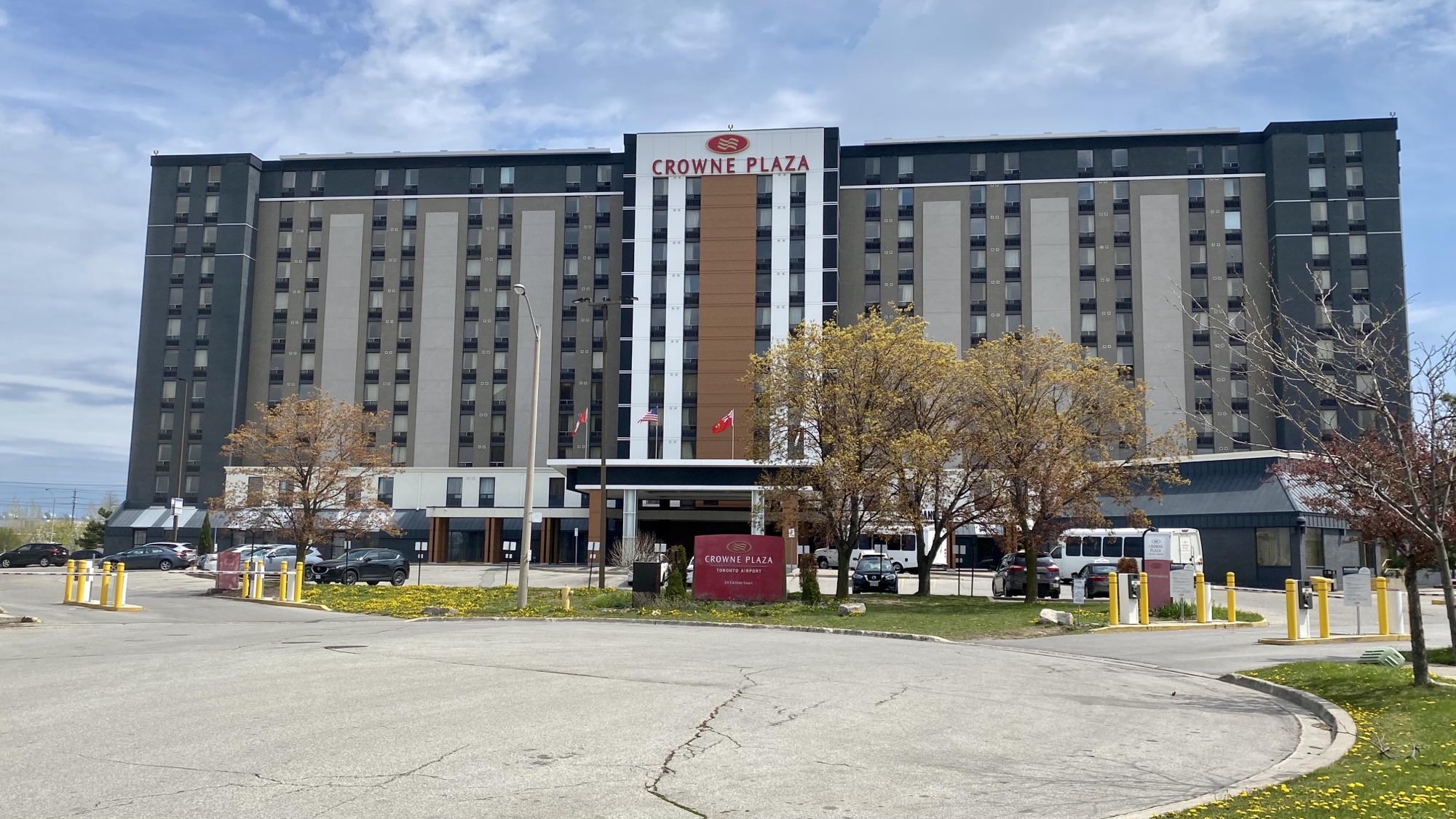
Toronto Public Health (TPH) says they are investigating a possible COVID-19 outbreak at one of the federal government’s designated quarantine hotels.
The Crowne Plaza Hotel, located at 22 Carlson Court, in the Highway 27 and Dixon Road area, is the focus of the investigation, public health confirmed on Sunday.
“Toronto Public Health is aware of cases in individuals linked to this workplace,” said Dr. Vinita Dubey, associate medical officer of health. “We have assigned staff to initiate an investigation and to work with the facility to identify all cases, and review and advise on all appropriate public health measures and infection prevention and control measures.”
TPH has not said how many people may be infected with the novel coronavirus or how the outbreak began.
People travelling into Canada on an international flight are supposed to stay in a government-authorized hotel while waiting on the result of a COVID-19 test taken shortly after landing. That rule has been in place since the end of February and was brought in as part of the effort to curb the spread of COVID-19.
Anyone who breaks a rule under the Quarantine Act can face a fine of up to $3,000.
If you break your mandatory quarantine or isolation requirements and you cause the death or serious bodily harm to another person, you could face a fine of up to $1 million or up to three years in jail — or both.
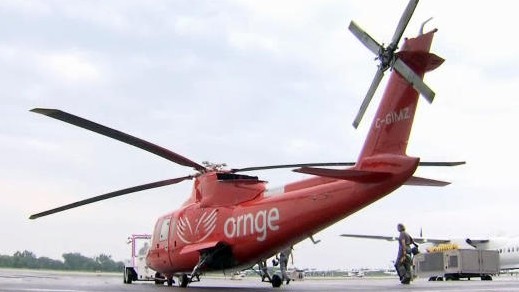
Ontario’s air ambulance paramedics have raised the possibility of going on strike – an “absolute last consideration” if they can’t land an exemption from a provincial law that caps their salaries.
Unifor, the union representing Ornge workers, said Sunday that paramedics voted 94 per cent in favour of strike action, if necessary, in a vote tabulated on Friday.
Ornge paramedics have taken issue with Bill 124, which came into effect in 2019 and caps public sector wage increases to one per cent a year.
Unifor National President Jerry Dias called the wage-cap law a “foolish piece of legislation” in a virtual press conference on Sunday, adding that the one per cent bump is “well below even the rate of inflation.”
“Enough is enough,” Dias said. “We can’t keep telling people how essential they are how important (they are), and then pass legislation that takes these paramedics and puts them into a separate bucket than all the other paramedics in this province. That doesn’t make any sense.”
The union members’ vote was to determine whether they’d be willing to take strike action. If they do choose to strike, they would first have to give notice.
Dias said Unifor is putting together an essential services protocol, which would outline services that are deemed essential for paramedics.
A Unifor spokesperson said paramedics will continue to provide those services. Unifor added that a date has not been secured to mediate the negotiations of an essential services agreement with the Ontario Labour Relations Board.
Ornge said union members rejected a recent tentative agreement that complied with Bill 124.
Paramedics who work for Ornge have been without a contract since July 31.
A spokesman for the medical transportation service said he believes both parties will be able to come to an agreement.
The Ministry of Labour said in an emailed statement Sunday that it has to remain neutral on labour relations matters.
“We encourage the employer and the union to make every effort to resolve their differences at the bargaining table,” a spokesperson for the ministry said.
The Ministry of Health did not immediately respond to a request for comment.
Ornge paramedics have been instrumental in helping transfer critically ill COVID-19 patients to intensive care units across the province. They also helped implement Ontario’s vaccination plan in remote communities.

















